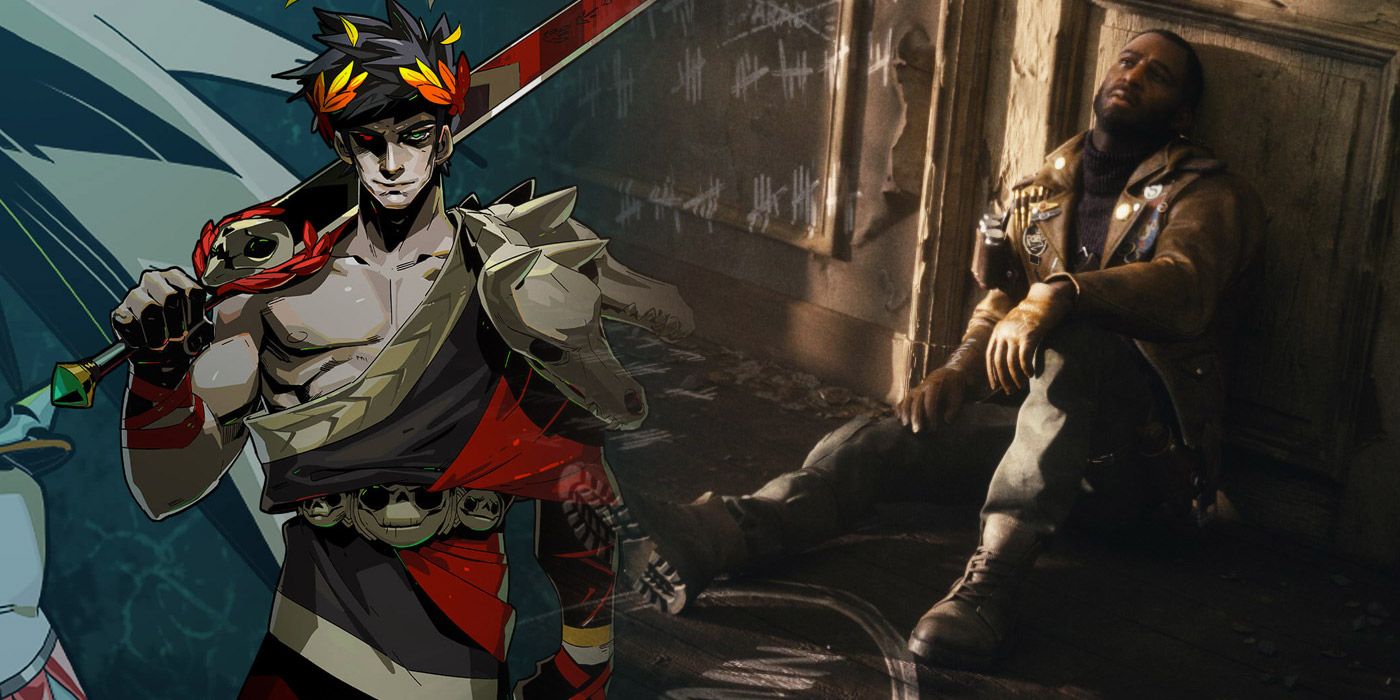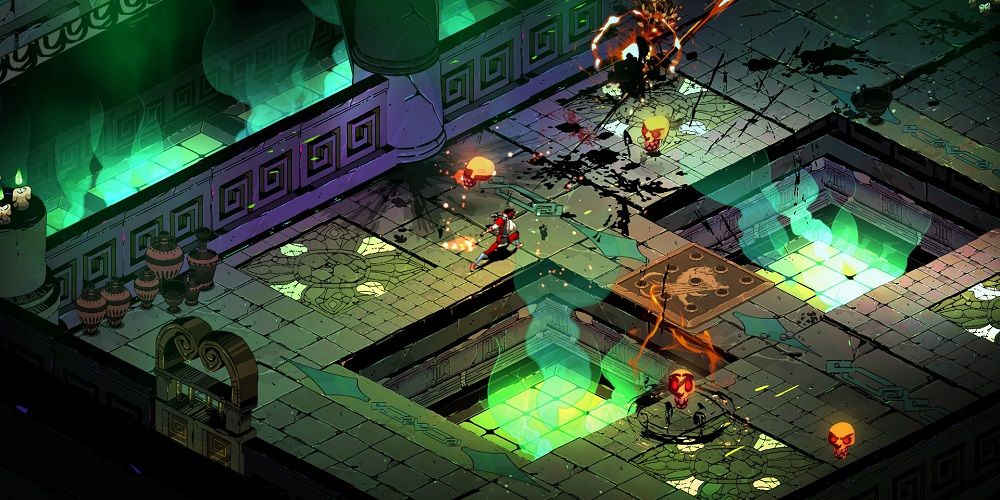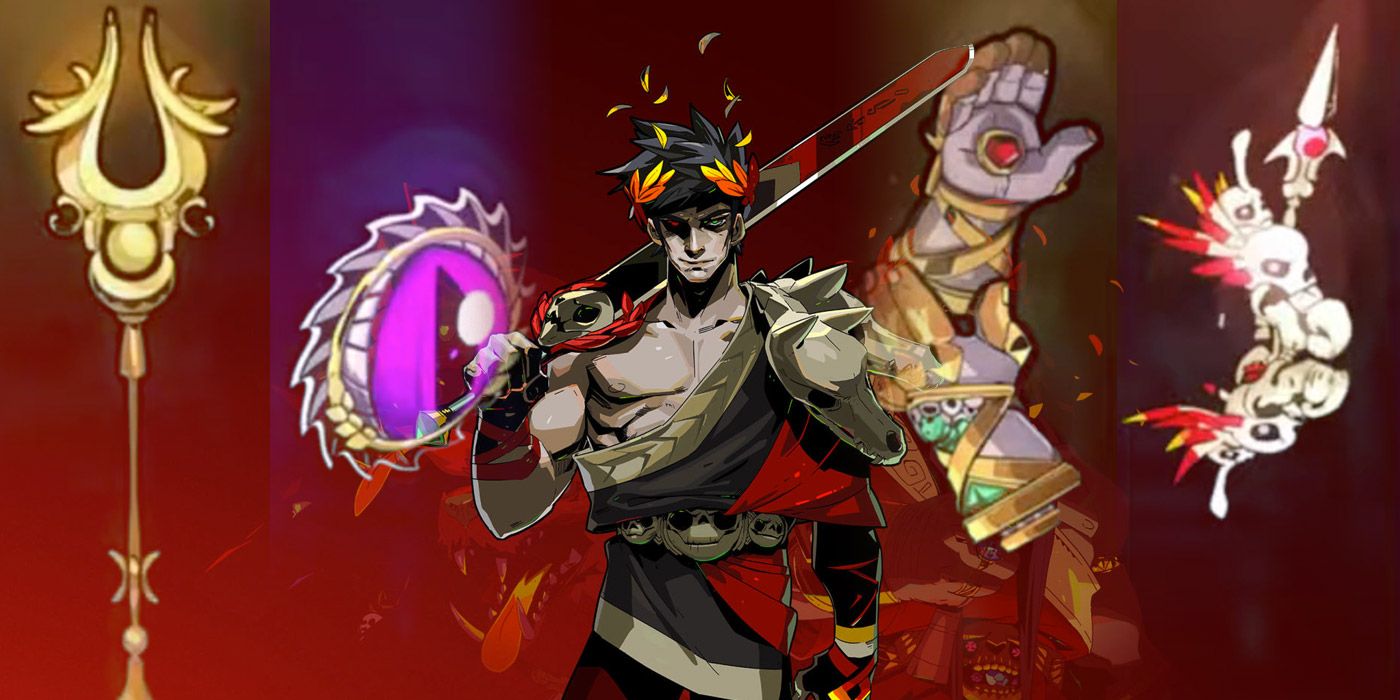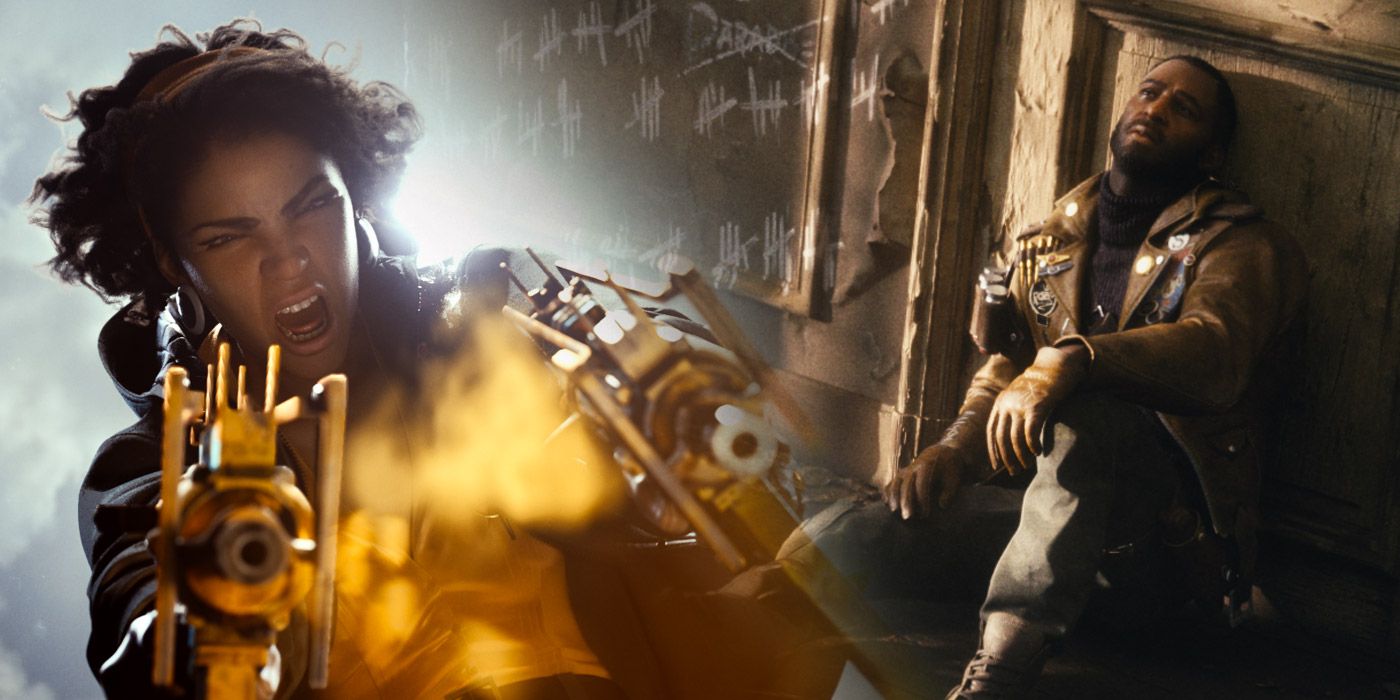
There is quite a bit of debate in the roguelike community over what exactly earns the classification of the genre, with much of the conversation being dominated by topics of difficulty and progression. However, titles like the upcoming Deathloop, as well as other recent entries along the lines of Minit and The Outer Wilds, have taken some of the roguelike genre's core mechanics and turned them on their heads.
One place to compare the differences present in these games that revolve around a repeating death-loop mechanic and the larger roguelike genre would be Supergiant Games' Hades, with its procedurally generated levels. While Deathloop might lack the procedural generation that normally defines the genre, there is enough crossover for fans of one to slip comfortably into the other.
RELATED: Hades Cosplayer Brings Hypnos to Life on Tiktok

To begin, Deathloop's fixed Blackreef Island takes it out of both the roguelike and roguelite genres, depending on how fans prefer to define the already splintering genre. That doesn't necessarily mean that Deathloop and Hades are completely disconnected though, even if their maps are so dramatically different from each other. There are benefits to the gameplay loop by keeping the roguelike's procedural generation, as well as by keeping the map fixed, but forcing the player to loop through a set time.
The only thing that really changes between runs is the specifics of what players are focusing on as they continue to loop through Blackreef Island or the different level of the Underworld. While Hades players are mastering mechanics, Deathloop rewards testing and memorization, almost acting like a speedrunning guide through its fixed map. Of course, this does often mean that Hades will have the edge when it comes to difficulty, since memorizing enemy placements and cover placement isn't an option, though that doesn't mean players aren't learning in both games.

Taking a step away from the key difference between the two genres, players can see that there is more overlap of shared ideas of Deathloop's time loop and Hades procedural repetition. For one, progression in both games will be determined less by gathering gear and building up some massive arsenal, and more on the player's ability to learn and understand the game over the course of multiple runs. In Hades, this comes down to learning how to best handle enemies and utilize different features of the terrain, such as springing traps, breaking line of sight with pillars, and creating distance with lava pools.
The fixed map of Deathloop, on the other hand, gives Arkane Studios a chance to create these intricate narratives of the Colt's assassination targets and give the player control over their movements throughout any given loop. It's all about learning everything there is to know about the world and the characters in this sense, which puts a heavy burden on the writing to make the efforts worth it. The flip side of this would be how Hades' writing becomes the reward for mastering combat mechanics that instead have to carry the load for the game.

On the opposite side of progression in either a time-looping mechanic or the roguelike genre is the stakes of having to finally make it through to the end of the game. Players can be drawn to Colt's personality in Deathloop and want to free him from his situation, or understand Zagreus' desire to escape the Underworld and be pushed by that driving force. However, when death is a mechanic built both into the narrative and the basics of gameplay, the stakes of each run can shrink as the game goes on.
In most games, this would be an outright criticism, but with the looping mechanics allowing for endless repetition, these decreasing stakes can give the player agency to experiment in a way they can't in most other games. If progress is going to be reset anyway, there's nothing stopping a player from jumping into an obviously overwhelming gunfight in Deathloop, just to see what happens, and how far they can make it. The same goes for Hades, where players can use burner runs to test new weapons and aspects in actual combat, but with little risk of loosing progress whenever one of these attempts inevitably ends in death.
RELATED: Artist Creates Incredible Hades Bass Music Cover

One way that Hades stands out against other roguelikes is in the way that the game periodically unveils its story through repeated encounters with other characters and expanding Zagreus' home in the Underworld. As mentioned before, the narrative and character interactions become the periodic rewards given to players for having mastered the mechanics of the game well enough to progress. This is a huge part of what makes Hades' gods so impactful as characters as well, by making the revelations that come with getting to know them being tied directly to gameplay.
In the case of Deathloop, that same narrative expansion is present, though it will likely become both the reward for mastering gameplay, as well as being integrated directly into how players approach the world. Getting immersed in Deathloop's world will be a requirement for progress, and so the narrative becomes as important for the player as it is for the characters within it. However, with limited time between each loop, it'll take repeated jumps into the world to gather all of the information the game has available.

Every game has an ending, even those in the roguelike genre that are built to essentially be repeated infinitely. The key difference that both Deathloop and Hades have that sets them apart from the regular linear narratives that are common in gaming is that the impact of the ending is completely up to the player. Getting through either Deathloop's time-loop or Hades' death cycles isn't the obvious end of a sequence of predetermined events.
Making it all the way through a run of Hades and defeating Hades isn't a testament of how many level Zagreus has gained as a character, but how the player has grown through the experience of completing the game. Similarly, Colt only escapes Deathloop when the player learns how to bring each of the targets together and close all of the loops at once. Its a unique type of ending that looping games, either with a time-loop or a death cycle, can offer to reward players specifically for mastering the game, which might suggest that the fixed loops could be an extension of the roguelike subgenre.
Hades is available now for PC and Switch. Deathloop is set to release May 21st, for PC and PS5.
MORE: Deathloop's Primary Enemy May Help Really Dive into the Mind of an Assassin

